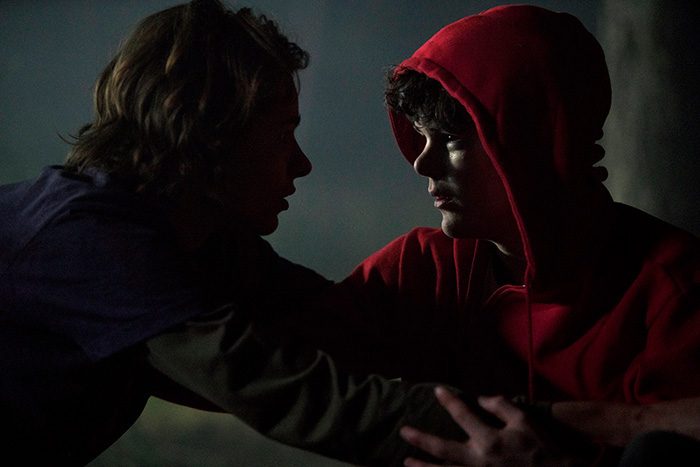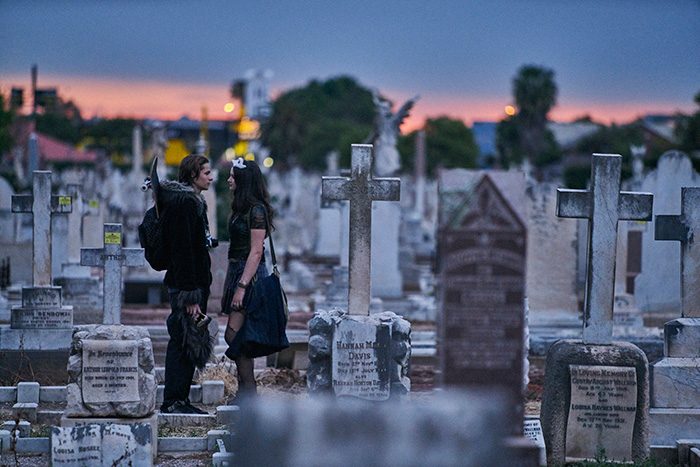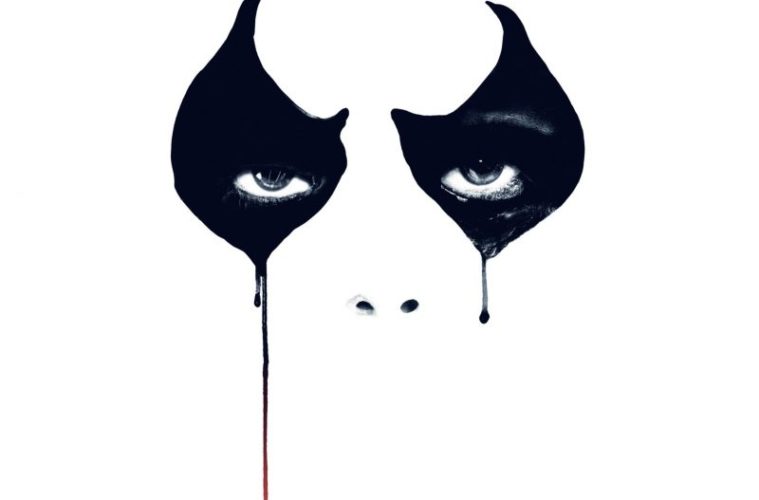We’ve all lost friends whether from naturally parting ways or an avoidable blow-up proving petty in hindsight. Age advances and tastes evolve — we don’t often think much of the phenomenon because they find peers more attuned to who they’ve become just like you. But sometimes the severed relationship carries with it pangs of guilt. Maybe the fracture was triggered by lame excuses like the concept of survival of the fittest, you joining your oppressors in order to stop being oppressed. Perhaps you cut loose the person you once said you’d do anything for in a way that transforms them into your enemy. And as graduation approaches with a clean break from the immaturity you’ve grown to resent, that guilt eats away at your conscience in search of relief.
This is the state in which we meet Corey (Toby Wallace) on Halloween 1997. His crossroads between present and future is coming into focus, an escape from Australia coveted to delve into his passion for photography and stop wasting time being a destructive teen alongside best friend Jango (Justin Hoborow). It’s a painful realization to conclude that a fresh start has become his best option for advancing past high school’s stagnancy — so painful he’s yet to break the news to anyone. When Corey’s father and Jango discover his sights set on New York City and question his change of heart from staying local, his insecurity embarrassingly rejects the notion. They don’t understand his desire to discover more. And the only person who would cannot be approached for advice.

I wanted to say Jonah (Gulliver McGrath) had been removed from Corey’s life in any meaningful sense of the idea, but that would be a lie. Their relationship isn’t based in friendship or positive reinforcement, but it’s definitely still meaningful to Jonah considering the level of abuse wrought by Jango’s “Gromits”. They’re vicious to this kid for no reason other than his being comparatively diminutive in stature and unwilling to wail on someone else for an incident proving to be as much his fault as the victim of his wrath. Jonah isn’t a bully. Corey, despite not joining the “fun and games” of Jango’s unprovoked assaults, is simply because he refuses to intervene. Considering their past together, this choice may verify his cowardice more than if he threw a punch.
So think of Nicholas Verso‘s Boys in the Trees as a macabre Christmas Carol — as if a story about spirits haunting a vicious old man isn’t macabre — by way of The Breakfast Club. As Corey wrestles between following Jango to the ends of the city or spreading his wings to experience the world, he cannot help remembering the last time he left a friend behind. Whereas this current example comes from a healthy place, however, the first was born from fear. Until this night isolates him to find Jonah skateboarding alone in the dark, he never truly realized the damage of his actions. Frustrated and possessed by a confidence only someone numbed from being pushed around too long could conjure, Jonah forces Corey to walk him home. He owes him.

This journey is where Verso lets the adolescent clichés dictating his characters’ actions rise to the surface, labeling Jonah the geek, Jango the thug, Corey the opportunistic follower, and Romany (Mitzi Ruhlmann) the dreamer who sees through the bullshit but refuses to hold the boys’ hands in order to show them how. Corey’s compassion is called into question by his refusal to stick up for Jonah when Jango and the gang come close to crossing their path. He still doesn’t fear for his former friend’s safety enough to intervene; he’s instead afraid of what he’ll do to ensure his new crew doesn’t think he’d willingly hang with the school’s pariah. It’s sad to watch Corey realize what this means and heartbreaking to acknowledge his inability to correct it.
The evening therefore gives Corey the opportunity to evolve into the man he hopes to become. It provides a chance for reconciliation with Jonah, to witness Jango’s true idea of friendship, and to find the courage necessary to let Romany know how he feels about her beyond the faux machismo no one is buying. He’s transported back to a simpler time when he and Jonah were young boys forever playing make-believe in the forest. They begin to scare each other with stories of monsters, each one inferring metaphorically upon their current psychological state. New promises are made and fresh wounds inflicted, Corey’s difficulty stepping out of Jango’s shadow proving detrimental to the dream he craves. Soon reality and fantasy merge into a waking nightmare of stunning revelations.

Verso suddenly infuses a sense of David Lynch surrealism with ghosts appearing where they weren’t and humans disappearing from where they never were. A poignant interlude of mourning comes with painted faces and the mysterious Man in White (Trevor Jamieson) — who’s been slowly chasing Jonah — delivering a stirring rendition of Live’s “Lightning Crashes”. Time begins to fold in on itself as Corey reaches an epiphany we all must to move forward with clear heads and open hearts. But as implied throughout, this moment of inner truth that gave The Breakfast Club a new lease on life via personal growth may come too late. The darkening of the film’s aesthetic and psychology is deeply rooted in a secret that’s anything but if you’ve been paying attention.
Amidst the rousing soundtrack of 90s rock recalling my own high school experience is a devastating message about childhood anger, ego, depression, and desire. McGrath’s Jonah and Ruhlmann’s Romany can get preachy at times with poetically resonate dialogue, but it’s hard to know what’s real or expressions of hard truths inside Corey’s own head. Holborow is great as the insecure bully suggesting crazy activities to distract from his feelings of abandonment and Wallace perfectly encapsulates the smarter and more optimistic than he lets on teen discovering his cynicism unfit to hide his anxiety. It runs a little long with an unnecessary epilogue, but its powerful imagery seared into my mind anyway. Tragedy is a surefire way to tear down your defenses once your brain lets it sink in.
Boys in the Trees is currently playing at the Toronto International Film Festival.

